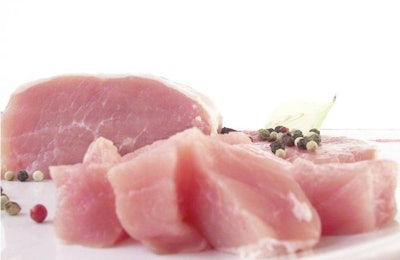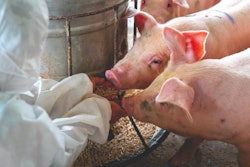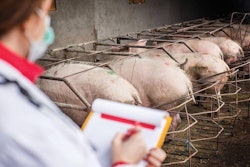
Several Asian countries, including China, banned German pork imports after its first ASF case was confirmed
German pork products have been supplying supermarkets in the European Union since several Asian countries banned imports from the country after it reported its first case of African swine fever (ASF) in September.
Germany’s Ministry of Food and Agriculture confirmed its first case of ASF in a wild boar in the eastern region on September 10. Subsequently, China, Japan the Philippines and South Korea banned imports of German pork. Germany is Europe’s biggest pork exporter, and there have been no reports of ASF in domestic pigs.
According to a Reuters report, German pork producers have found opportunities to sell cuts such as shoulder meat and hams in the EU, but have struggled to find buyers in the region for cuts like ears and feet that usually go to China and other Asian markets.
The additional supply of German pork in the EU market has caused an oversupply of bacon, chops and tenderloin, pushing down prices in Europe. However, other European pork-producing countries have been able to capitalize on new opportunities to export to China since it stopped allowing German imports.
Germany is pushing Asian importers to accept pork from regions of Germany that are not affected by ASF.
“Berlin must press the principle of regionalization in talks with China and Korea,” a spokesman for German meatpacker Mueller Group told Reuters. “The whole of Germany really should not have a long-term export ban.”
While Germany’s pork producers grapple with the threat of ASF to their pig herds, they also continue to suffer adverse impacts of coronavirus (COVID-19). Cases among workers at pork slaughterhouses have heavily restricted production at these plants. As a result, market-ready pigs are being held on farms. The resulting heavy stocking and mounting costs are adversely impacting animal welfare and producers’ bottom line. According to the federal agriculture ministry, pig producers have expressed their concerns about a looming animal welfare problem.
View our continuing coverage of the African swine fever outbreak.
View our continuing coverage of the novel coronavirus (COVID-19) pandemic.
















